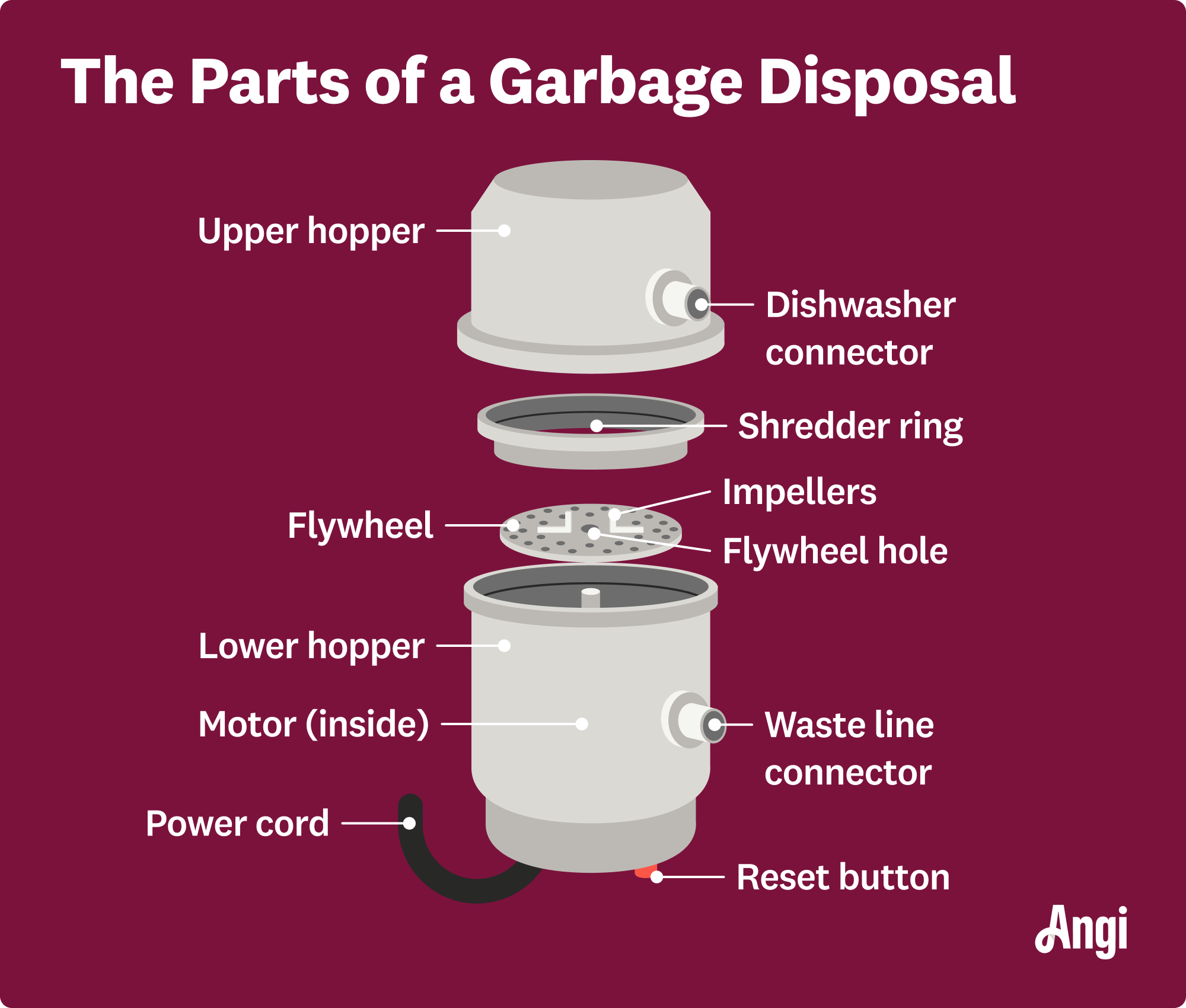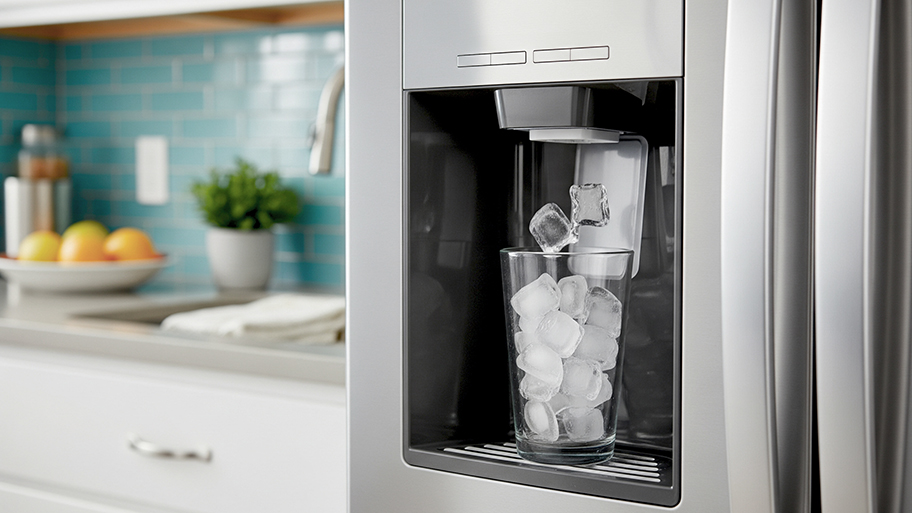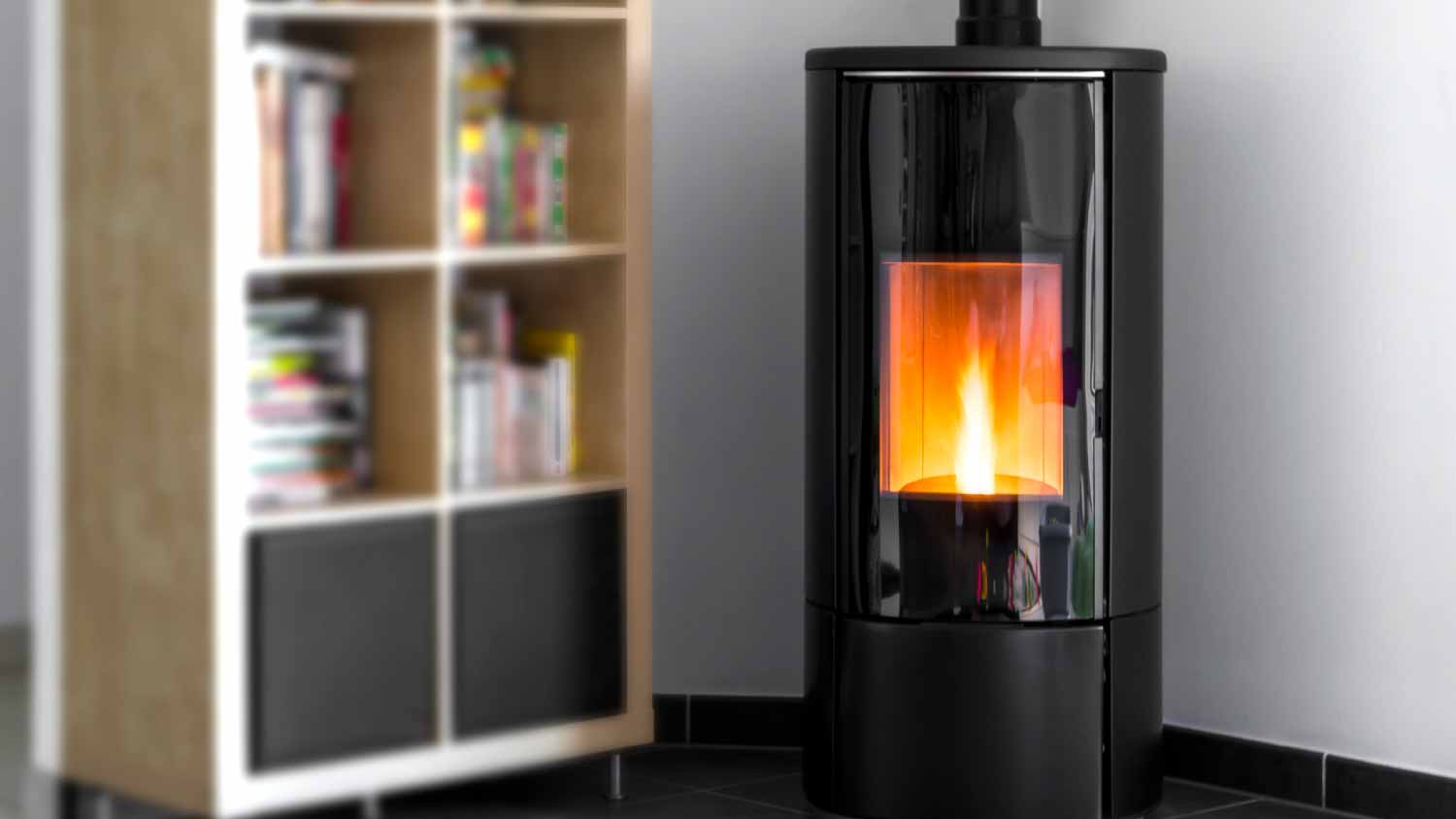
Installing a gas dryer can help you save on your monthly energy bills. Depending on whether you need a new gas line, gas dryer installation costs will vary greatly.
Appliance repair costs depend on your project and location. Check with a local pro for your specific job.
You can DIY a garbage disposal installation for about $75 if you have the time and tools.
Steel disposals are more than double the cost of aluminum ones, but they’re long-lasting and more durable.
Households with five or more people should up their horsepower, which doubles the cost.
Buying a used garbage disposal could save you about 50% of the cost (as long as you are diligent about your pick).
While disposals can handle many types of food, avoid pasta, rice, and bread for the longest lifespan.
The cost of garbage disposal replacement is $550 on average, though it can range between $150 and $950. The majority of the cost is for the garbage disposal itself, but labor can also greatly impact the total price tag.
Using the garbage disposal helps keep your sink clean and your plumbing in good shape. If you're budgeting for a new unit, here’s what you need to know.
A disposal’s motor size dictates how much food debris it handles simultaneously. Obviously, larger and more powerful motors cost more, so choose the right-size motor to suit the needs of your household to avoid overpaying.
A small household of one or two people only needs a ⅓- or ½-horsepower motor, which costs from $50 to $225. A larger household of five to eight people benefits from a garbage disposal with a 1-horsepower motor, which costs $200 to $400.
| Disposal Motor Size (Horsepower) | Average Price Range |
|---|---|
| 1/3–1/2 | $50–$225 |
| 5/8–3/4 | $120–$310 |
| 1–1-1/4 | $200–$400 |
Replacing an existing garbage disposal is straightforward and should take a technician an hour or so. Technicians charge about $50 to $100 per hour for installing a garbage disposal. The installation process requires some leveling, making a few simple connections, affixing the exterior, and testing.
In most cases, pros will scoop up the old unit as part of the overall estimate. Since they’re removing it anyway to make room for the new unit, having them haul it away isn’t a burden, as they’re well-versed in local facilities that accept faulty garbage disposals. However, if there are accessibility concerns, such as a corroded unit that won’t move, the technician will charge for the time spent getting to the garbage disposal for removal. At worst, this leads to an uptick of $50 to $100.
Garbage disposal replacement costs range from $200 to $625, with the average cost being around $550. For skilled DIYers, you could pay as little as $75 for a new unit and the tools to install it. Prices vary based on the type of unit you choose, the garbage disposal’s motor size, and labor costs.
When it comes to the wacky world of garbage disposals, you have two major types to choose from. There are continuous feed disposals, which cost $75 to $1,000, and batch feed disposals, which cost $75 to $300.
Continuous feed disposals tend to be pricier, since they allow for continuous disposal without needing to stop and cover the unit. However, batch feed disposals are more ideal for households with children, since the cover prevents accidental activation.
| Feed Type | Best For | Average Cost |
|---|---|---|
| Continuous feed disposals | High-volume waste | $75–$1,000 |
| Batch feed disposals | Safety-conscious households or smaller kitchens | $75–$300 |
Most disposals are made from aluminum or stainless steel. Aluminum is the less expensive and more common option, as aluminum garbage disposals cost $75 to $300, depending on power and size. However, aluminum disposals are prone to leaks and corrosion and have a shortened life span of under 10 years.
Stainless steel garbage disposals cost $400 to $1,100 but offer increased durability and minimal risk of corrosion or leaking. Stainless steel disposals are often found in high-volume households and commercial institutions.
Your new disposal comes with a manufacturer’s warranty and potentially a second one from your installer. Check the fine print when purchasing or hiring a plumber to know what’s covered.
Warranties range from a year to 10, depending on the make and model. These are limited warranties that protect you from manufacturers’ defects, so you’ll still need to be careful about what you’re putting in your disposal to avoid costly mistakes.
The electrical needs of your disposal depend on the make and model and your local building codes. Some disposals are easily plugged into an existing 120-volt outlet and draw five to 10 amps, while some codes may require a dedicated 15-amp circuit with GFCI and AFCI protection.
GFCI (ground fault circuit interrupter) and AFCI (arc fault circuit interrupter) protection means your breaker will safely turn off if needed for increased safety. Call a licensed electrician if you need help figuring out the electrical requirements for your new disposal or need new wiring.

Garbage disposals last an average of five to 10 years, with some stainless steel models running for as long as 15 years. If your disposal is near the end of its life span, a replacement is the better option to avoid future service calls.
However, if your disposal is on the newer side and the maintenance issue isn’t overly complex—say it’s jammed or won’t turn on—a repair is the better bet, as replacement components cost less than a brand-new model. Talk to your pro to see if repair is an option or if they recommend picking up a new garbage disposal for a replacement.
Realizing your home needs a different-sized garbage disposal to handle everything might be one reason to consider replacing your existing one. However, most replacements happen due to the device's failure. Here are several cases in which a new garbage disposal may be in your near future:
No operation when powered
Leaks in places that aren't pipes
Slow or weakened performance
Slow draining even after ensuring the drain pipes are clear
Needing to use the reset button often
Metal-on-metal or persistent grinding noises
Contrary to popular belief, garbage disposals don’t actually have blades like you’d find in blenders or food processors. Instead, they use dull hammers to grind—not chop—the food waste in your sink.
As you can imagine, garbage disposals are overwhelmingly installed in kitchens for easy access and high functionality. According to Angi data, 96% of Angi customers report having a garbage disposal in their kitchen, with other options of outdoor kitchens and wet bars at 0.8% and 0.5%, respectively.
Check out the most commonly requested projects:
Without a solid understanding of your garbage disposal system and the connected plumbing and septic systems, it's best to leave replacement to a local garbage disposal installation pro. DIY installation is less expensive, but you risk potential leaks or other functionality issues. Pro installation is more efficient and ensures the work is up to code, often coming with a warranty.
There are several advantages to hiring a pro to install your garbage disposal, such as:
A pro will complete the job efficiently, saving you time and minimizing disruption.
Pros can offer advice on how to use and maintain a new disposal properly, which can be especially valuable if you have a septic system on the property.
DIY mistakes can result in leaks and damage to kitchen cabinets, flooring, and plumbing.
A pro has the eye to diagnose other plumbing issues that you may be unaware of.
Some installers offer a warranty on their work to protect you in case issues occur.
Here are some tips to ensure you make the most of your budget for a garbage disposal replacement.
Buy used: Garbage disposals are hearty appliances, so used models are not too risky, particularly if they were taken out of service for reasons other than repairs. Buying a used model saves up to 50%, but have your technician inspect the unit before going ahead with the purchase. Better yet, have them source it for you.
Repair if possible: If the issue is minor, repairs are more affordable than replacements. If your disposal is jammed, for instance, it likely requires a simple unclogging. If it doesn’t power on, it could mean someone accidentally pressed the reset button if it doesn't power on. Talk to your pro to discuss budget-friendly repair options.
Start small: The size of the motor is a primary cost factor when buying a new garbage disposal. Start small to save some money here. If you live with just one or two people, go with the smallest option available, which costs $75 to $200.
Prepare the area: Any work you complete ahead of time saves you on labor costs. In other words, clear the immediate area so the disposal is easily accessible. If you have the experience, remove the faulty disposal ahead of time.
Discuss the specific problems you’re experiencing and whether repair may be an option.
Ask about warranties on the new disposal and on the installation labor, including the duration of the term and what’s specifically covered.
Determine whether or not they’ll haul away the old garbage disposal after replacement.
Home is the most important place on earth, which is why Angi has helped more than 150 million homeowners transform their houses into homes they adore. To help homeowners with their next project, Angi provides readers with the most accurate cost data and upholds strict editorial standards. We extensively research project costs to develop the pricing data you see, so you can make the best decisions for you and your home. We rely on reputable sources, including the U.S. Bureau of Labor Statistics, academic journals, market studies, and interviews with industry experts—all to ensure our prices reflect real-world projects.
Want to help us improve our cost data? Send us a recent project quote to [email protected]. Quotes and personal information will not be shared publicly.
From average costs to expert advice, get all the answers you need to get your job done.

Installing a gas dryer can help you save on your monthly energy bills. Depending on whether you need a new gas line, gas dryer installation costs will vary greatly.

Discover the average ice maker repair cost, key price factors, and tips to save. Learn how to budget for your ice maker repair and when to repair or replace.

Garbage disposal repair costs depend on the specific issue, but you can save money if you DIY. Read on to learn which problems you can fix yourself and which require a professional.

Learning how to determine washer box height in your laundry room will come in handy when you need to access your washer connections.

Finding the right pro to install your new washer and dryer will help the machines work better, last longer, and ensure everything is connected correctly.

Not sure who to hire to repair a wood pellet or gas stove? See which pro to call, what they do, and how the repair process works.